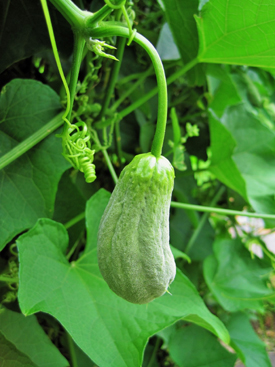Who Pays? Our Habit Of Not Paying For Our Food
WHO PAYS? OUR HABIT OF NOT PAYING FOR OUR FOOD (ISSUE 163) JANUARY 27, 2015
By Diane Gold
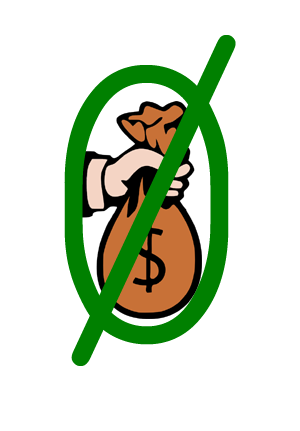 Our habit of not paying for our food is common. Since most of us are basically moral and would not thoughtfully take food without growing it or compensating the grower for it, this statement needs further discussion. We’ll start with the upfront premise that it is our duty to preserve our humanity and whatever else lives on our planet with good food.
Our habit of not paying for our food is common. Since most of us are basically moral and would not thoughtfully take food without growing it or compensating the grower for it, this statement needs further discussion. We’ll start with the upfront premise that it is our duty to preserve our humanity and whatever else lives on our planet with good food.
DEFINING “PAY”
To start, let’s consider what we mean by “who pays.” To pay is to compensate or trade someone for a product or service. One of the ways we pay is through consequence for an action, or through some type of suffering, which is the focus of this article.
WHO PAYS FOR OUR FOOD?
Who pays for the land, oceans, water, soil, pollution of our resources used to produce our food? We may think that all is well because the farmer legally buys the land or section of ocean from the state or previous owner in/on which to cultivate; s/he then pays to prepare the topsoil or the ocean area; s/he then pays the water company for all the water needed for growing and slaughter (for non-plant farms); s/he then pays the workers to work the land or ocean. Neat and tidy, right?
It seems as if it’s OK that no one is paying for all the resources because we work hard and pay a price at some market for the end result. We probably think that the cost of resources is included in the price.
 Newsflash! Currently, no one pays a monetary price for this. Everyone’s grandchildren will pay for it.
Newsflash! Currently, no one pays a monetary price for this. Everyone’s grandchildren will pay for it.
Strange as it may seem, the farmer doesn’t pay money to deforest forests or to desertify land or to dead zone oceans or dirty rivers. Nor does s/he pay money for lack of water which occurs due to overuse. Nor does s/he pay money to place carbon, nitrous oxide or methane emissions produced from the farm or for depletion of oxygen and marine life due to the fishing/fish farming industry.
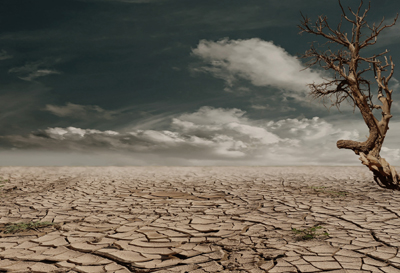 This means no one pays financially for the circumstances we create, and no one pays to clean what we dirty.
This means no one pays financially for the circumstances we create, and no one pays to clean what we dirty.
So, who pays? Our grandchildren pay. They pay by being handed our situation multiplied by a great deal. Not a nice gift, even if we are able to gift them money to begin to clean up our mess.
Because species are obliterated, our air supply is not clean, our land has been stripped of its usefulness, our rivers are polluted and our oceans have become sick or dead zoned, money we give to our grands cannot fix everything.
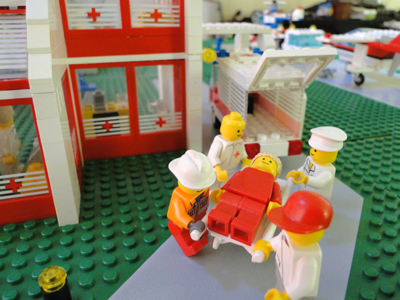 (If we wanted to look from a health perspective, we also pay because eating meat, fish, fowl and dairy cause health issues. So, we pay with our health.)
(If we wanted to look from a health perspective, we also pay because eating meat, fish, fowl and dairy cause health issues. So, we pay with our health.)
EDUCATION
And why aren’t we fixing it now? I choose to believe we don’t know any better. That’s where education comes in.
Miseducation is a way not to pay for our food. But, someone pays. When we are not teaching about how farming overuses land, soil, air, oceans, water and deletes certain species (that we have not yet even discovered); we contribute to deforestation. We are going around as if we have the right to continue the way we are. If we’re breaking our original edict, to preserve humanity, uh-oh.
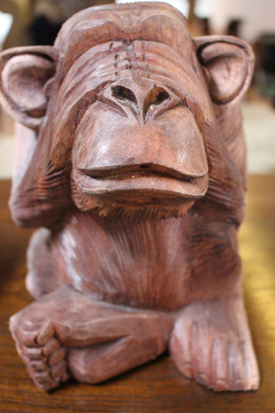 If we don’t educate ourselves because we listen to Big News which is close friends with Big Agro which miseducates us or omits how agriculture drives global depletion fueled by our gluttony; we are closing our eyes and failing to learn. Many teachers are not yet aware of the vast differences in land, oceans, air, soil used to farm animals or plants. Even if we don’t mean to do it, if we don’t investigate how we are not paying, we perpetuate the hurt.
If we don’t educate ourselves because we listen to Big News which is close friends with Big Agro which miseducates us or omits how agriculture drives global depletion fueled by our gluttony; we are closing our eyes and failing to learn. Many teachers are not yet aware of the vast differences in land, oceans, air, soil used to farm animals or plants. Even if we don’t mean to do it, if we don’t investigate how we are not paying, we perpetuate the hurt.
LAND, OCEANS, SOIL, AIR, WATER AND SPECIES
We use up our land, oceans, soil, air, water through farming. It is even approximated that we use up species by using rainforest for farming.
There are 8 million estimated world species of which we have catalogued about one-eighth. Many of these species are in the rainforests. Western medicine gets as much as 25% of our wonder drugs from the rainforest. So, it might be fair to say we are throwing away a hefty amount of potential cures by making extinct about 100 species a day for deforestation which works out to 1-2 acres per second for agriculture.
NOT PAYING: ANIMAL-BASED AGRICULTURE VS. PLANT-BASED AGRICULTURE
Unless we are in one of the agriculture businesses or are investigating the topic, we might be surprised to know that animal agriculture (including fish, fowl, dairy) and plant agriculture have different environmental and health effects. Here are some facts that might be eye opening:
1) The U.S. Government subsidizes the cost of meat, fish, poultry, dairy; so we don’t really know its real cost, even excluding global depletion costs. If the demand does not provide livelihood and we are finding severe health issues with this type of consumption, why are we subsidizing these industries?
2) If we had to pay for the depletion of land, soil, water and oceans; we would only be able to afford to buy the lettuce, tomato, pickle and hamburger bun that goes with the hamburger at the fast food restaurants around the world. And this wouldn’t include paying for endangering or making extinct any species from deforestation. Aren’t species priceless, though? (Comfortably Unaware, Richard Oppenlander, p. 108)
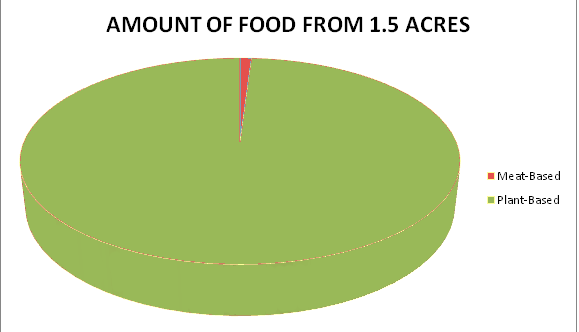 3) 1.5 acres produces 37,000 pounds of plant-based food but only 375 pounds of meat. That’s about 1,000 times as much plant-based food as animal-based food on the same land. (Food Choice & Sustainability, 2013, Richard Oppenlander)
3) 1.5 acres produces 37,000 pounds of plant-based food but only 375 pounds of meat. That’s about 1,000 times as much plant-based food as animal-based food on the same land. (Food Choice & Sustainability, 2013, Richard Oppenlander)
According to http://cowspiracy.com/facts’ compilation,
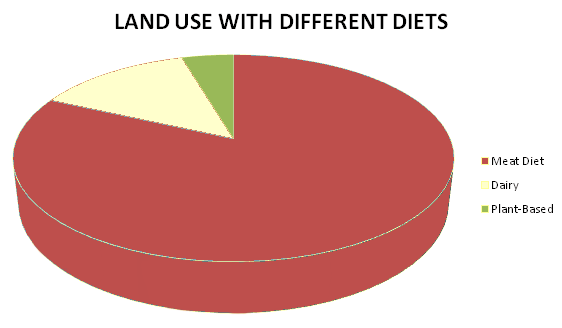 4) It costs 18 times as much land to farm animal food as it does to farm plant food.
4) It costs 18 times as much land to farm animal food as it does to farm plant food.
5) Plant-based eaters use 50% as much carbon dioxide, 9% as much oil (for manufacturing and processing), 8% as much water and 6% as much land as meat-based eaters.
6) It is estimated that plant-based dieters save one animal’s life daily.
7) For every pound of fish caught, it’s estimated that 5 pounds of unintended fish are caught and thrown away plus 650,000 whales, dolphins and seals and are killed accidentally each year by fishing boats.
FOOD FOR THOUGHT
8) “Of the top 15 causes of death, a plant-based diet can prevent nearly all of them, can treat more than half of them and in some cases even reverse the progression of disease, including our top 3 killers.” (Michael Greger, M.D.of NutritionFacts)
CONCLUSION
Based on these concepts, our habit of not paying for our food is hurting us (most of all in the health department), because who pays? We all do. Most of us, even in the food industry, are not concerned for what we don’t pay. We are interested in what we do pay and look for ways to reduce this. Here are some action ideas to consider. It is true, when we do anything, we affect something. Thus, it’s our responsibility to act.
ACTION STEPS
1) TAKE COMMUNITY RESPONSIBILITY
 John Perkins told a story about the Shuar Tribe in Ecuador. One of the community came back to the elders with news that a plant along the trail was healthy when he went by, but 72 hours later, when he came back, the plant was sick. The elders had a council meeting, conferring with a wise one who said the plant gave a sign that the path was overused. They decided to take community responsibility and ruled to close the path.
John Perkins told a story about the Shuar Tribe in Ecuador. One of the community came back to the elders with news that a plant along the trail was healthy when he went by, but 72 hours later, when he came back, the plant was sick. The elders had a council meeting, conferring with a wise one who said the plant gave a sign that the path was overused. They decided to take community responsibility and ruled to close the path.
Sounds right to me.
2) PAY THE PERCENTAGE
Everyone could join in paying for the resources. The farmer and finishing company or slaughterhouse/processor would have to pay for the percentage of destruction or global warming caused. The end user/consumer would pay a higher price for the product.
3) REQUIRE EDUCATION run by a team that can never work in any of the industries or a government position on which the education focuses, so there’s less chance to slant the truth.
4) REQUIRE TRANSPARENT, ONGOING STATISTICS configured by scientists who can never work in government, farming, lobbying, consulting so their stats are not swayed by bonuses or future opportunities.
5) CREATE PERCENTAGE ENFORCERS who get paid extra for finding violators.
6) EAT PLANTS,
for health and planet.
![]()
If you wish to share your story, please hit reply in your email program to be contacted.
If you need habit help, go to warriorsofweight-consulting.
![]()
FEEDBACK
We value your feedback very much.
Please leave a comment below.
Please LIKE us on the website and at
WarriorsOfWeight on Facebook.
You can also follow us on Twitter @warriorsoweight.
Thanks.
![]()
DIANE GOLD, PUBLISHER AND AUTHOR
Diane Gold, Founder of Warriors of Weight, Turning Habits Into Health, is a mentor in tai chi, kung fu and meditation, a music, fitness and stress expert, dedicated mom, studying plant-based nutrition in certificate course, peaceful conflict resolution and habit replacement.
She loves talking about our habits with food. She says,
“So much of the way we eat has to do with the education process. Whether from our families or in school, it has influenced us greatly. We would never suspect that either of these places could misinform us.
“We now know that a lot of our family foods may not be healthy for us. We know more than previous generations, including how our bodies interact with food sources and what, from the past, is untrue. As with every generation, our parents or grandparents did not have what we have, nor the speed with which to share it.
“It’s our responsibility to investigate what’s nutritious, whether the stories that meat, fish, fowl, dairy are unhealthy and whether eating plants can stop starvation and preserve us. It is ours to care for ourselves, our planet, our sisters and our children. The perfect reasons to run right out and do research for ourselves on everything I’ve said in this article.
“Finally, let us all take good care of ourselves because we are so worth it!”![]()

